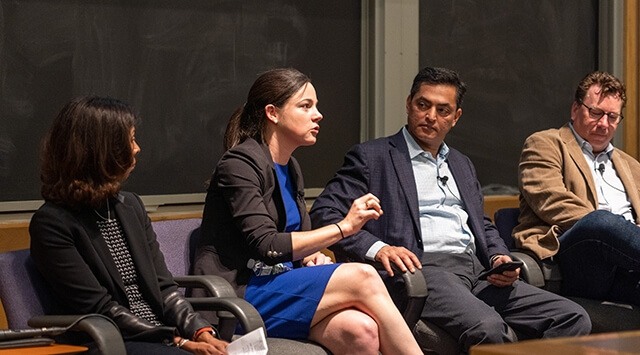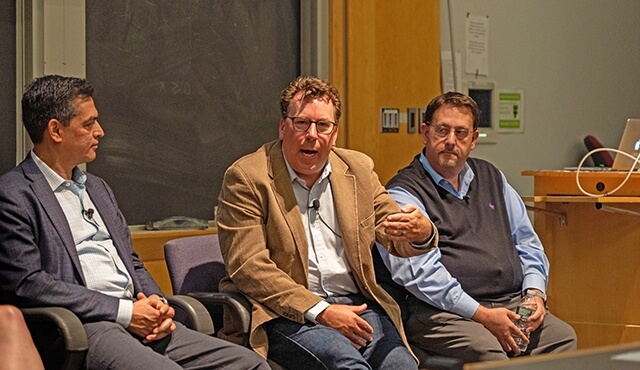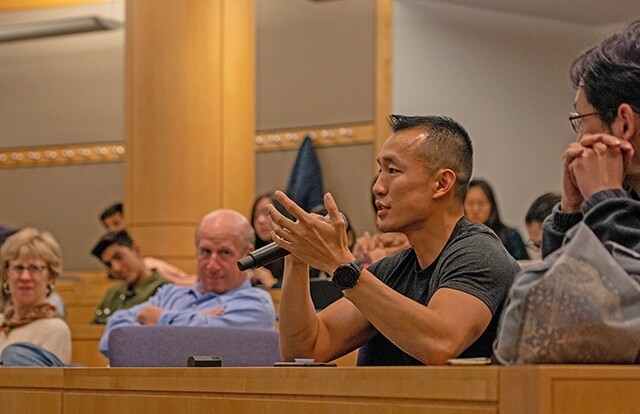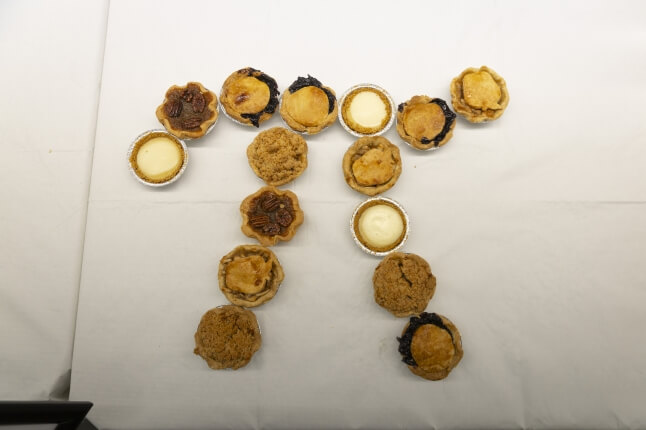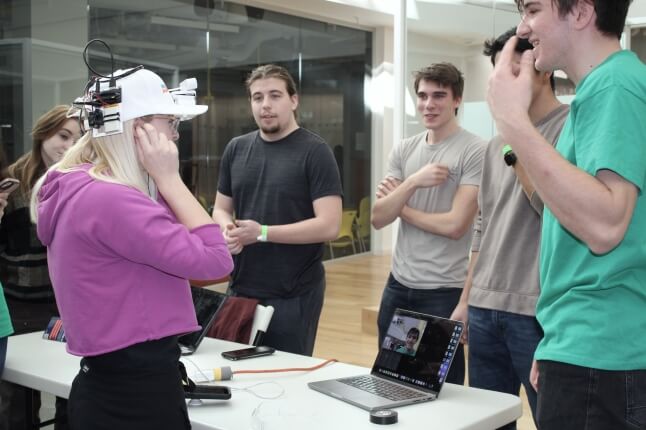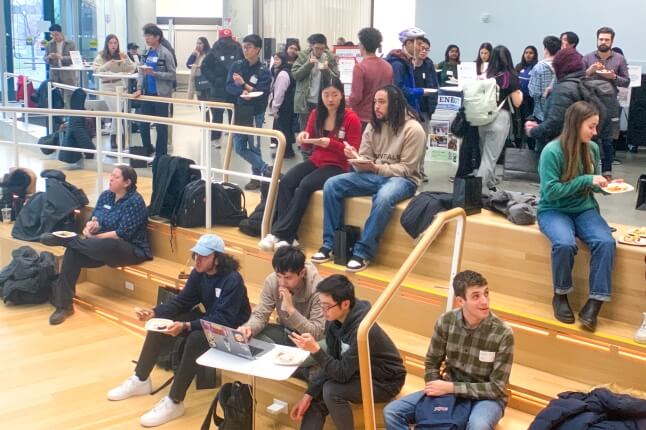News
Meghan Ricci, a consultant at Egon Zehnder, discusses the critical role engineers play in media during a Dean's Industry Lecture Series panel discussion. (Photo by Deng Pan/SEAS Communications)
Technological innovation has made engineers crucial to the success of media companies.
During a Dean’s Industry Lecture Series panel discussion at the Harvard John A. Paulson School of Engineering and Applied Sciences, executives discussed the role of engineers in media, innovation, the importance of soft skills, and offered advice for students seeking rewarding media careers. The panel was organized and moderated by Renu Thomas, an Advanced Leadership Initiative fellow at Harvard and former executive vice president of operations, engineering, and information technology at Disney/ABC Television Group.
The speakers encouraged students to explore the many roles they could have at media companies -- as engineers, product managers, or strategic executives. Changes in the industry, such as the diversification of distribution platforms, has made engineers invaluable for delivering media in a reliable manner and enabling cost-effective content creation, said Keith Barbaria, vice president of technology for NBC Boston, Telemundo Boston, and New England Cable News (NECN), NBC Universal-owned stations.
Panelist Meghan Ricci, a consultant at Egon Zehnder, agreed that engineers play a critical role in the media. She emphasized the importance of layering soft skills on top of engineering skills. Technical skills are now taken as a given. Through her consulting work she has found soft skills such as managing people, being a change agent, and working cross-functionally to bring different teams together to be most compelling.
John Honeycutt, vice president of telecommunications, media, and entertainment at Google Cloud, emphasized the importance of not only coming up with an idea, but exciting people around it to drive the idea forward. (Photo by Deng Pan/SEAS Communications)
“You have to create waves of energy to come up with an idea and excite people around it to drive the idea forward,” said John Honeycutt, vice president of telecommunications, media, and entertainment at Google Cloud.
He cited the example of how an employee created Gmail as a “20 percent project,” an initiative at Google where employees are encouraged to spend 20 percent of their time experimenting with new ideas outside their formal roles. The Gmail creator found that his ability to communicate effectively and bring people together, more than his engineering skills, ultimately enabled the project, Honeycutt said.
The speakers also offered advice to students who are looking to make an impact in media.
Sunit Patel, executive vice president, merger and integration lead, at T-Mobile, emphasized that the fast pace of change demands mental flexibility. It is important to be constantly ready to learn, he said, encouraging students to ask themselves, “What if I’m wrong?” Asking that question forces him to listen more closely to his ecosystem and better adapt to adversity.
An audience member asks the panelists about the role of engineers at media companies. (Photo by Deng Pan/SEAS Communications)
To Barbaria, the best piece of advice is to maintain integrity.
“Without integrity, there is no opportunity. Always choose the side of integrity in your career, it’ll serve you well,” he said.
During the Q&A portion of the talk, Kit McArthur, S.B. ’20, a mechanical engineering concentrator, asked the speakers to share examples of unexpected, successful crossovers between liberal arts and innovation. Patel responded that he has seen how having a broader background that draws from other disciplines, like business or anthropology, leads to a wider imagination and a bigger toolbox.
McArthur sought the speakers’ advice because he has often heard that Harvard’s strength lies in the fact that the engineering program is embedded within a liberal arts education. He appreciated the perspective the panel brought to campus.
“I like seeing people who have gotten far in their careers,” McArthur said. “Seeing what’s possible in the future is an encouraging reminder, especially in the midst of schoolwork and problem sets. It’s cool to see people who have gotten past that stage to where you hope to be.”
Topics: Events
Cutting-edge science delivered direct to your inbox.
Join the Harvard SEAS mailing list.
Press Contact
Adam Zewe | 617-496-5878 | azewe@seas.harvard.edu
